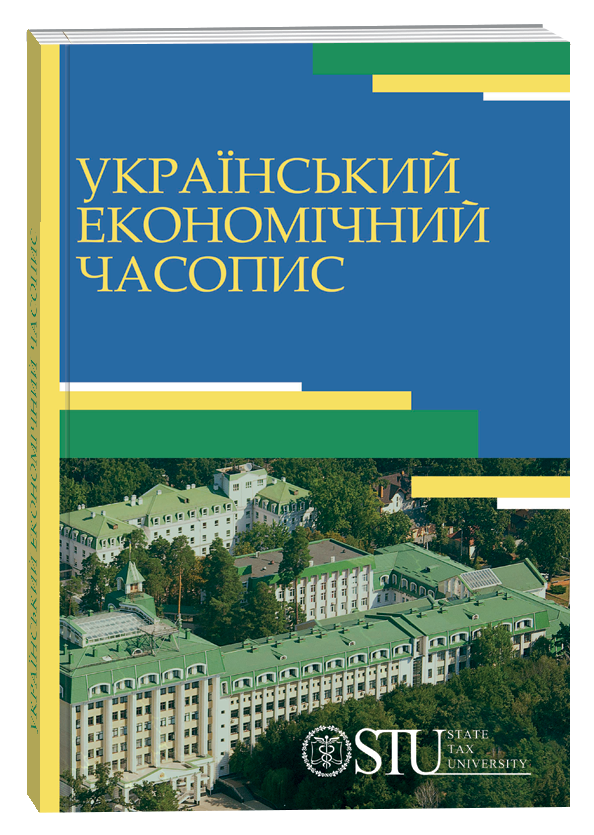THEORETICAL ASPECTS OF THE CONCEPT OF TOTAL REWARDS
DOI:
https://doi.org/10.32782/2786-8273/2024-6-29Keywords:
the concept of Total Rewards of employees, digitalization, compensation, benefits, work-time balance, performance management, recognition of achievements, personnel developmentAbstract
Introduction. The topicality of the concept of Total Rewards at the present stage of development is due to the complication of the process of motivating employees to work effectively as a consequence of the intellectualization of the labor process in the context of digitalization. Its emergence and development are due to structural shifts in national economies and the world economy as a whole, as a result of which a service economy and a knowledge economy are formed, where a person becomes the most valuable strategic asset. Purpose. The purpose of the article is to determine the theoretical aspects of the concept of Total Rewards of employees in modern conditions. Methods. In the course of the study, the methods of theoretical and logical generalization were used to determine the content, evolution of development and the main advantages of the concept of Total Rewards, content analysis and system analysis to determine the components of the concept. Results. To achieve the purpose, the essential content of this concept and the main components of its elements are determined, namely: compensation, benefits, balance of working and non-working hours, performance management, recognition of achievements, development and career opportunities. It was found that these elements correlate with the needs of all levels in A. Maslow's theory of motivation. The main idea of the concept of Total Rewards is contained in the focus of attention on employees. It is noted that the evolution of the concept of Total Rewards occurred due to the layering of motivating factors of a non-material nature as the labor process became intellectualized. It is found that the advantages of the concept of Total Rewards stem from the possibility of combining various measures to attract employees of the enterprise to productive labor activities of a material and non-material nature, depending on the changing conditions of the external and internal environment. Conclusion. It has been determined that each individual enterprise empirically derives its own formula of Total Rewards for each separate category of personnel or each individual employee, and this formula is not stable and will change depending on the factors of the external and internal environment.
References
Shatalova L. Directions of the influence of digital technologies on the field of work in the context of global and national dimentions. Економічні інновації. 2022. 24(4(85). С. 173-181. DOI: https://doi.org/10.31520/ei.2022.24.4(85).173-181
Шаталова Л. Сучасний погляд на розвиток теорій мотивації праці. Економіка та суспільство. 2024. № 62. DOI: https://doi.org/10.32782/2524-0072/2024-62-164
Armstrong М. Armstrong’s handbook of reward management practice : improving performance through reward. 2010. India: Replika Press Ltd
Tropman J. E. The Compensation Solution: How to Develop an Employee-Driven Rewards System. San Francisco : Jossey-Bass. 2001. Р. 28–33.
Pfeffer J. The human equation: building profits by putting people first. Boston : Harvard Business School Press, 1998. 345 р.
Семикіна М.В., Іщенко Н.А., Родіонова М.О. Мотивація ефективної зайнятості: проблеми, тенденції, вибір стратегії : монографія. Кіровоград: КОД, 2009. 200 с.
Петрова І. Л. Стратегічне управління людськими ресурсами : навч. посіб. К. : КНЕУ, 2013. 466 с.
Total Rewards 2.0: At the Convergence of Rewards, Recognition, and Benefits. 18.08.2021 р. YouTube. URL: https://www.youtube.com/watch?v=sEZ7LXp45ZU (дата звернення 02.08.2024 р.)
Shatalova L. (2022). Directions of the influence of digital technologies on the field of work in the context of global and national dimentions. Economic innovations. 24(4(85). 173-181. DOI: https://doi.org/10.31520/ei.2022.24.4(85).173-181
Shatalova L. (2024). Suchasnyy pohlyad na rozvytok teoriy motyvatsiyi pratsi. [Modern view of the development of labor motivation theories]. Ekonomika ta suspilstvo (62). https://doi.org/10.32782/2524-0072/2024-62-164, [in Ukrainian].
Armstrong М. (2010). Armstrong’s handbook of reward management practice: improving performance through reward. 3rd ed. India: Replika Press Ltd
Tropman J. E. (2001). The Compensation Solution: How to Develop an Employee-Driven Rewards System. San Francisco : Jossey-Bass.
Pfeffer J. (1998). The human equation: building profits by putting people first Boston. Harvard Business School Press.
Semykina M.V., Ishchenko N.A., Rodionova M.O. (2009). Motyvatsiya efektyvnoyi zaynyatosti: problemy, tendentsiyi, vybir stratehiyi [Motivation of effective employment: problems, trends, strategy selection]. Kirovohrad: CODE.
Petrova I.L. (2013). Stratehichne upravlinnya lyudskymy resursamy [Strategic management of human resources]. K. : KNEU. 466 p.
Total Rewards 2.0: At the Convergence of Rewards, Recognition, and Benefits (2021, August 18). [Video]. Available at: https://www.youtube.com/watch?v=sEZ7LXp45ZU



